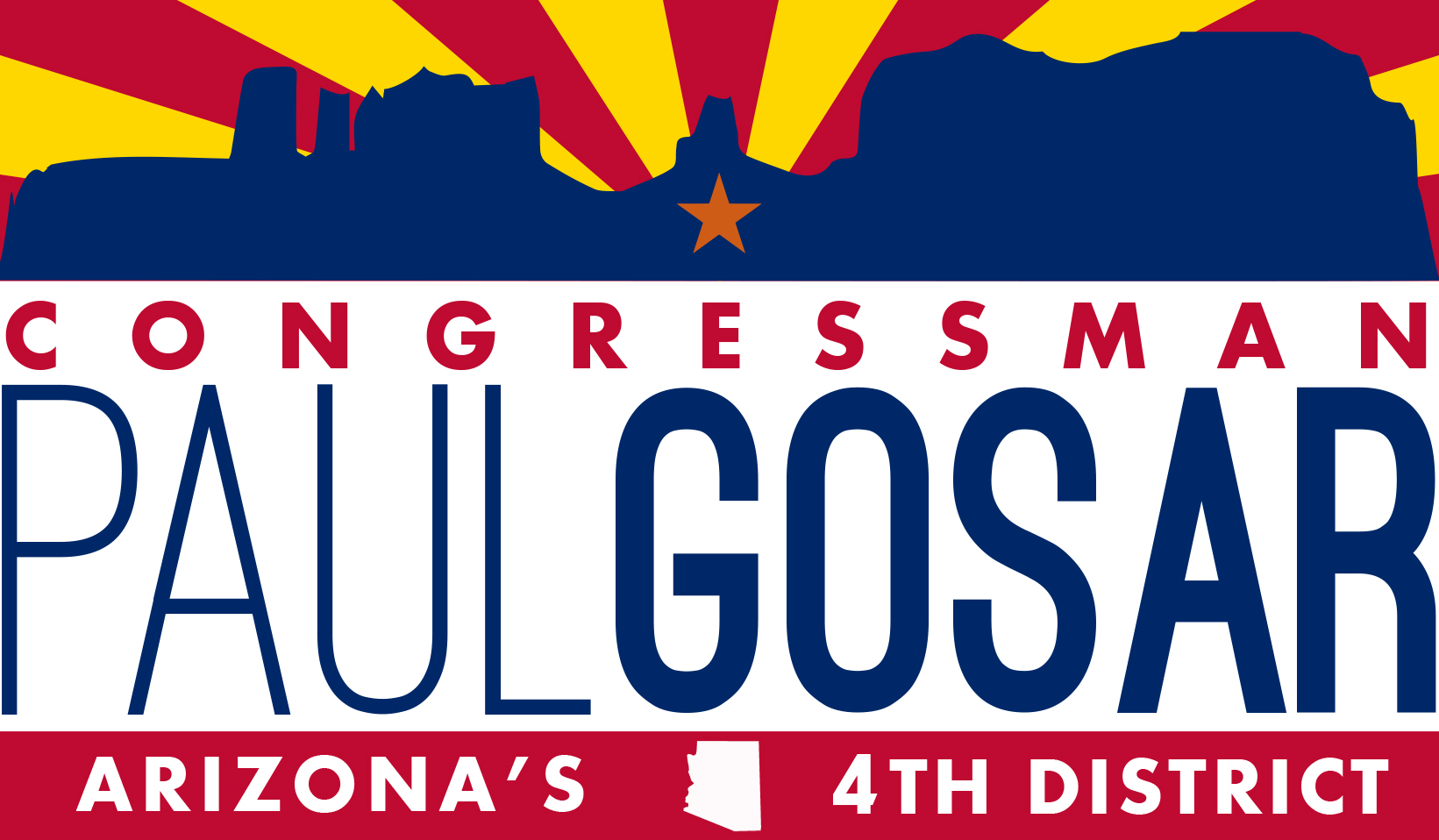|
Today, U.S. Congressman Paul A. Gosar, D.D.S. (AZ-04) released the following statement in support of legislation he sponsored with Rep. Diane Black (TN-06), H.J.Res.46, a Congressional Review Act (CRA) bill that blocks the National Park Service’s (NPS) Oil and Gas Rule:
“Extremist groups are stoking unsubstantiated claims that H.J.Res.46 will authorize new drilling in our National Parks. This is utterly false. According to the National Park Service, ‘There are currently 534 non-federal oil and gas operations in a total of 12 System units…Non-federal oil and gas rights exist within System units in situations where the United States does not own the oil and gas interest.’ H.J.Res.46 simply seeks to block a midnight Obama regulation implemented in November which unjustly targeted the livelihoods of these existing non-federal operations. Once this fundamentally-flawed Obama regulation is rolled back, these private and state-controlled operations will continue under the same environmental regulations that have worked well for the past 38 years.”
“Private property rights are a bedrock principle of America. However, the Park Service’s midnight oil and gas regulation jeopardizes significant investments made by job creators, states and private companies. The federal government has no right to impose job-killing regulations for private and state-owned oil and natural gas wells not owned by the federal government, especially when these wells are already subject to existing environmental regulations. Again, these are non-federal oil and gas rights we are debating. If allowed to stand, the Park Service’s new regulation could result in unconstitutional takings, permitting delays and job losses. Congress must block this rule as a result.”
Background:
On November 4, 2016 the National Park Service (NPS) released a final rule for oil and gas development covering private and state-owned oil and gas rights. This misguided rule could negatively impact 534 non-federal oil and gas operations in Park units located in New Mexico (4 operations), Florida (20 operations), Texas (232 operations), Tennessee/Kentucky (159 operations), Ohio (90 operations), and West Virginia (29 operations). This regulation will kill private sector jobs and stifle energy production.
The State of Utah filed comments in opposition to the proposed rule stating amongst other comments, “The State finds the proposed rules for hydraulic fracturing premature due to ongoing litigation and the tripling of the permitting review period to be wholly burdensome for industry... The proposed 180 day timeframe for oil and gas permits is completely unacceptable. The proposed change to Section 9.104 would lengthen the timeframe for the NPS to reach a final decision on a future oil and gas permit application, from 60 days to 180 days, plus allowances for an extension if the NPS determines that it needs more time. Six months for a permit decision by the NPS is an exorbitant length of time that creates unnecessary delays in industry operations.”
The Independent Petroleum Association of America, Western Energy Alliance, and the American Exploration & Production Council filed comments in opposition to the proposed rule stating amongst other comments, “The imposition of additional regulations on non-federal oil and gas development within the National Park System is unnecessary, and will only result in duplicative layers of regulatory oversight. We believe that the record shows that the present 9B regulations have equipped the NPS to carry out its responsibilities under 54 U.S.C. § 100101 in a manner that achieves a balance between the purposes for which units in the National Park System are managed with the valid existing rights of a modest number of owners of mineral rights under surface lands within National Park System units… Regulation of oil and gas operations within NPS units also confronts the well-established principle of common law that when an individual owns the minerals of a parcel but not the surface, the mineral rights owner is entitled to reasonable use of the surface to recover the minerals… In these situations mineral estate owner’s reasonable use of the surface to recover the minerals is a legal right that must be balanced with all interests involved… Overly burdensome restrictions on the rights of leaseholders to access or otherwise develop mineral rights could also constitute an unconstitutional taking of private property rights… The [current] regulations authorize a process that emphasizes planning, consultation, preparedness, financial assurance, and mitigation, and equip responsible NPS personnel with the tools to assure that these outcomes are recognized by operators and achievable in practice.”
###

|

